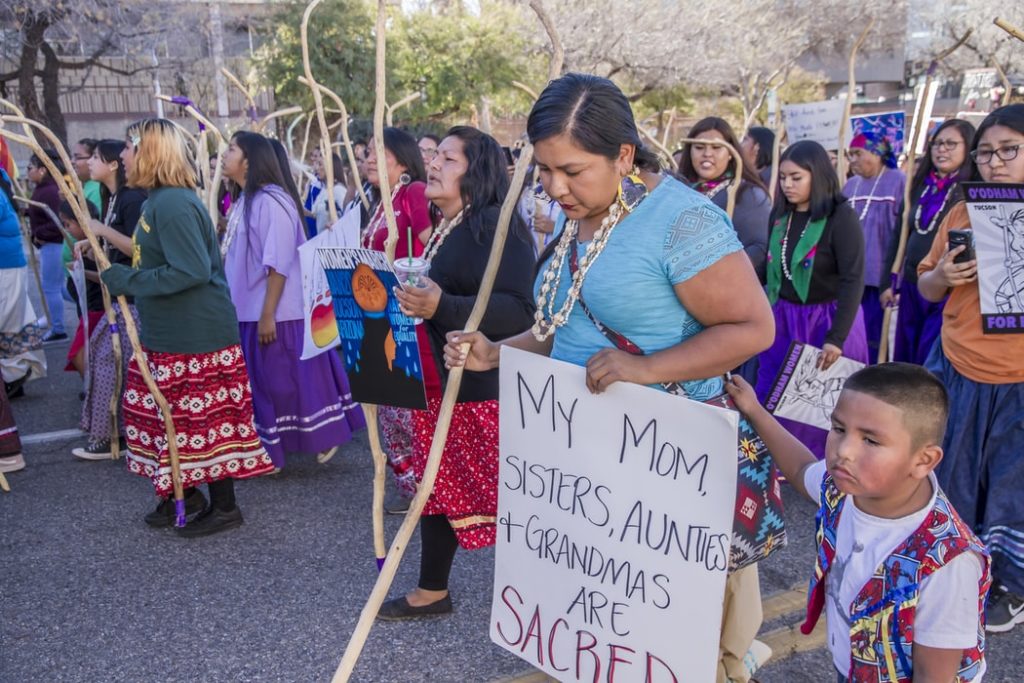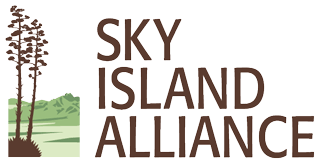What does it mean to decolonize conservation? Why does mainstream environmentalism still recognize the 1960s as the “birth of the environmental movement” when communities all around the world have protected Earth’s ecosystem for centuries? How do we as a society, Sky Island Alliance as an organization, and me as an individual push back on persistent dominant narratives that attribute environmentalism to exclusive groups of white Americans? These are questions I reflect upon regularly—and especially today, October 12th, of the first year that Arizona recognizes Indigenous Peoples’ Day.
As a college student, we first read the “Environmental Classics,” from Silent Spring to A Sand County Almanac to Walden. Then, in a later class on environmental racism, we delved deeper into these texts and explored the (not very) hidden narratives of racism, elitism, and settler-colonialism entrenched in the American conservation movement. As I learned about the displacement of Native peoples and people of color to create the National Park System in the U.S. and the toxic waste sites, like uranium mines on the Navajo Nation, that were not popularized by the Silent Springs of the world, I could no longer compartmentalize the blatant exclusion of the environmental movement.

We can all do something new this first Indigenous Peoples Day in Arizona to support Native communities. Photo Credit: Unsplash, Dulcey Lima
So what can be done in the conservation movement? With such a complex, troubling history, it may be tempting to reject it outright. I believe, though, through educating ourselves—as conservation scientists, environmentalists, and citizens—we can understand how colonial, imperialist sentiments still undermine the work we do and how the problematic assumptions made by the frameworks continue to marginalize many communities.
First off, educate yourself. It is painful to challenge long-held individual beliefs and dominant narratives you’ve been taught your whole life. A stark example of this is the challenge for many white Americans to reject Columbus Day. As Shannon Speed, a citizen of the Chickasaw Nation and director of the UCLA American Indian Studies Center, put it last year: “Today we understand that while [Columbus] was an explorer and is credited with being one of the first Europeans to arrive in the Americas, we now know a great deal about the history and the way that he and his people behaved when they came to this continent, [which] included pillaging, raping and generally setting in motion a genocide of the people who were already here. That’s not something we want to celebrate. That’s not something anyone wants to celebrate.”
So what can you do this Indigenous Peoples’ Day to support Native communities? One clear start to what will become a lifelong path of growth and understanding is to reimagine your list of “Environmental Classics” to include the voices of Black, Indigenous, and People of Color (BIPOC).
There are some great resources available to guide your reading:
- 10 BIPOC Environmental Authors
- Anticipated Books of 2020 by Indigenous Authors
- Outdoor/Nature Books by BIPOC Authors
- 25 Books by Indigenous Authors To Read
- 2019 Books by Indigenous Authors
So what will I do today, on my first Indigenous People’s Day living in Arizona? I will take time to learn about the traditional territories of the land I now occupy from Native Land and make space for the next generation of Native leaders in Arizona, like the youth-led Indigenous People’s Initiative who are pushing to officially abolish Columbus Day in favor of Indigenous Peoples’ Day. I will expand my understanding of conservation and challenge the prevailing stereotypes of environmentalists. Finally, I will strive to learn a more accurate story of America, embracing the truth and pushing to make Sky Island Alliance and other conservation groups more inclusive, equitable, and collaborative. These are the type of environmental groups we need in 2020.
References:
https://www.npr.org/2019/10/14/769083847/columbus-day-or-indigenous-peoples-day
